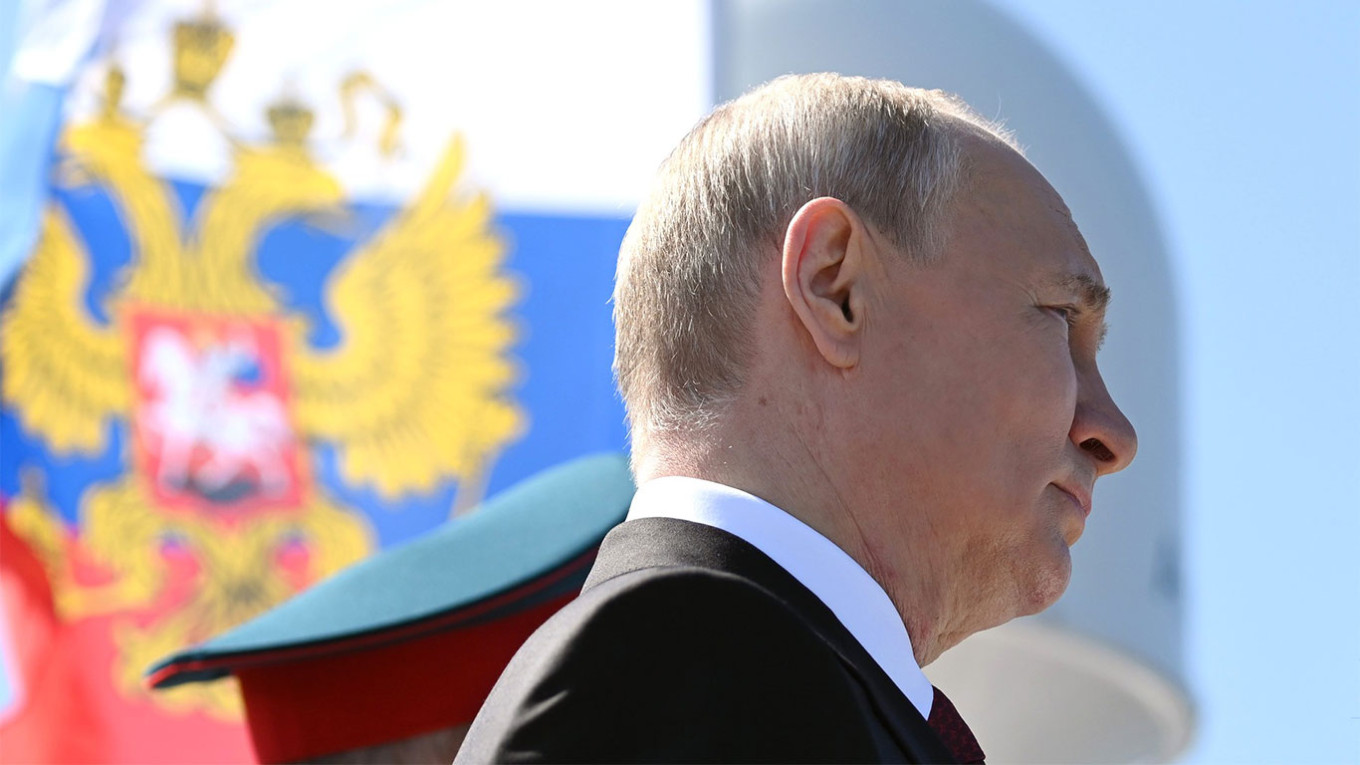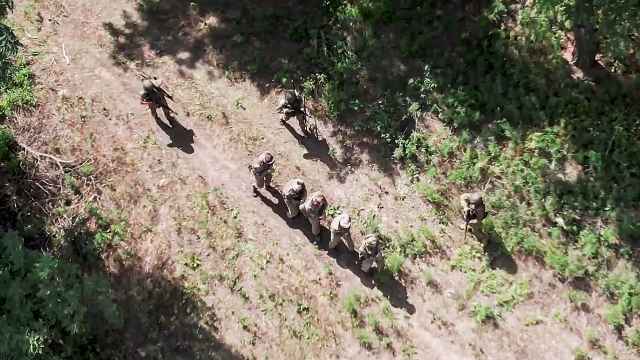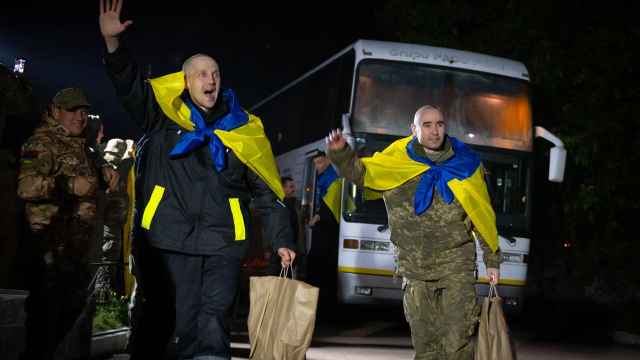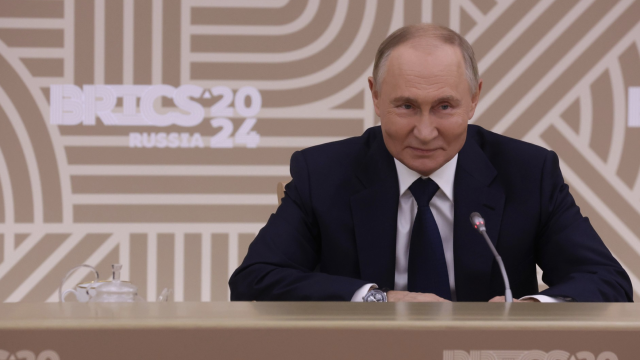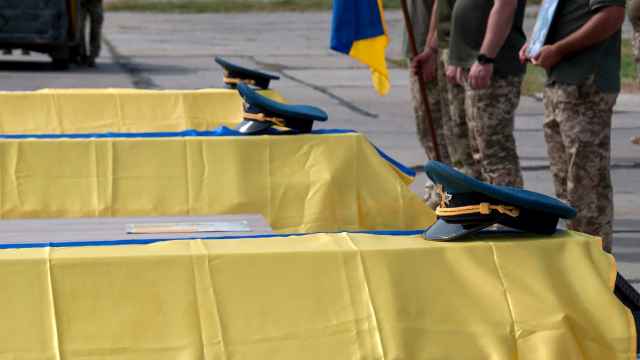“No one wants to negotiate with Russia,” President Vladimir Putin has complained several times on camera in recent days. He would like to reach a peace agreement or a ceasefire, he claims, but there are no negotiations.
Why are there no negotiations with Putin? This question is not as simple as it may appear. Nevertheless, there are two main reasons.
The first reason, the "image of the war," is obvious, but Putin does not understand it, and no one can explain it to him.
The second reason, which is much more significant, is structural: Putin lacks the ability to take on binding commitments. In reality, it's precisely this structural reason that impedes negotiations.
The image of the war
Since Feb. 24, 2022, the first day of the Russo-Ukrainian war, the main images of the war in the international media have been of residential buildings in Ukrainian cities destroyed by Russian rockets; civilians killed and wounded; and women, children and elderly refugees. For any ordinary person, this war is associated with photographs of peaceful Ukrainian civilians executed by Russian soldiers in Bucha, mass graves uncovered in liberated Lyman and Irpin, and flooded houses after the destruction of the Kakhovka dam. And the responsibility for all of this falls on Putin and his ministers and generals. No matter how cynical a Western politician might be, they cannot negotiate with Putin, because the average person in their country sees what is happening on the frontlines and in the rear. How can you negotiate with those who are responsible for this war?
The fact that the war is being broadcast in real-time was obviously something that those who prepared and launched it did not expect. Columns of Russian tanks on Ukrainian roads, missile and bomb strikes on residential areas and civilian infrastructure — all of this is shown on television screens and newspaper front pages at the frequency at which they happen. While not shown live, the murders of civilians in Bucha and Irpin have since been documented by dozens of news agencies and international organizations. This is the first war in human history that the world is observing live, as it unfolds. Those who initiated this war are naturally perceived as criminals, not as partners for negotiation.
The difficulty for Putin and his closest associates is that they, of course, do not understand the image of the war that is seen by the whole world. They live in their own specially crafted reality, in which there were no chambers for torturing detainees during the occupation of Kherson, no executions of civilians and unarmed Russian prisoners of war in Bucha, and no Russian aerial strike on the Mariupol theater, where women and children sought refuge from bombings. Not only does this not exist in Putin's world, but even if he had an adequate adviser now, he couldn't tell Putin about it! In Putin's Russia, speaking the truth about the war is forbidden — even if it is necessary for cynical, pragmatic reasons.
Putin should be told that in order to create a possibility for negotiations, he needs to publicly appoint investigations into the crimes committed in the occupied and subsequently liberated territories. The leadership of the 64th Motorized Rifle Brigade and perhaps the entire 35th and 36th Armies of the Eastern Military District, the 331st and 137th Airborne Regiments, the 104th and 234th Assault Landing Regiments, and other military units responsible for the killings of civilians in Bucha should be brought to trial. Officers and soldiers directly responsible for these crimes should be appropriately punished. The same goes for other key episodes.
The same applies to those who could engage in negotiations. Who would negotiate with Lavrov, Polyanskiy, Antonov, and other “diplomats” who lied to the whole world about Bucha with a straight face?
But who can say this to Putin? Who can answer his question, “Why aren't they negotiating with us?” if the answer to this question is considered a crime under his laws? The “information bubble” in which Putin and his entourage live is not a journalistic metaphor. It consists of a powerful institutional structure, laws, and people who are imprisoned based on those laws. Putin does not know how the whole world perceives the Russo-Ukrainian war, and he cannot find out.
The structural reason
The war's image is an important reason why Ukrainian President Volodymyr Zelensky and Western politicians are not negotiating with Putin, but it is not the most important. Yes, negotiating with someone who ordered an aggressive war and demands recognition of his conquered territories is difficult due to internal political constraints. It's challenging but possible. Negotiations were once conducted with Pol Pot, a bloodthirsty maniac worse than Stalin or Mao; with Gaddafi, a dictator almost as bloody; with Arafat, responsible for terrorist attacks against civilians; and other leaders too toxic to negotiate with publicly. After all, professional diplomats are essentially doctors who treat patients regardless of their moral qualities.
The difficulty lies in the fact that negotiations with Putin are currently pointless because he cannot make any meaningful commitments. He can make promises in words, but in reality, these promises are worthless. Over his 20-year rule, he has promised practically everything — his signature is on the border treaty with Ukraine, for example. And he violated all of it. Over the past two years, he has broken almost every promise he made. Again, Putin himself may not even know about this. I suspect it would be a terrible risk for his subordinates to remind him of what he said a month, a year, or even a week ago. But everyone else knows that he breaks all of his promises. No matter how pragmatic and cynical a negotiator might be, what is the point of such negotiations?
Of course, Putin's inability to make binding commitments is not his personal problem. It is an institutional one. This is where the parliament would come in handy, but it is completely destroyed — in the sense that everyone knows that whatever laws the deputies may pass, they can cancel them tomorrow at the administration’s request.
Unlike countries where parliaments work, in the Russia of 2023, the parliament is not a source of independent guarantees. It is not a mechanism that can provide binding commitments. The same applies to any Russian institution, be it ministries or regional administrations. They cannot be a source of independent guarantees. Putin's promises, whatever they may be, cannot be backed up by anything.
It is not surprising that no one in the West counts on negotiations with Putin. See above; how can you negotiate with someone who will inevitably violate the agreements? Even if he does not want to violate them now and genuinely believes in them, nothing in Russia can compel him to keep those agreements. That is precisely why the current plan — no negotiations until the defeat of Russian forces on Ukrainian territory, and post-war guarantees of Ukraine's security through NATO membership — appears to be the only realistic option, even for the most hardened cynics.
A Message from The Moscow Times:
Dear readers,
We are facing unprecedented challenges. Russia's Prosecutor General's Office has designated The Moscow Times as an "undesirable" organization, criminalizing our work and putting our staff at risk of prosecution. This follows our earlier unjust labeling as a "foreign agent."
These actions are direct attempts to silence independent journalism in Russia. The authorities claim our work "discredits the decisions of the Russian leadership." We see things differently: we strive to provide accurate, unbiased reporting on Russia.
We, the journalists of The Moscow Times, refuse to be silenced. But to continue our work, we need your help.
Your support, no matter how small, makes a world of difference. If you can, please support us monthly starting from just $2. It's quick to set up, and every contribution makes a significant impact.
By supporting The Moscow Times, you're defending open, independent journalism in the face of repression. Thank you for standing with us.
Remind me later.



